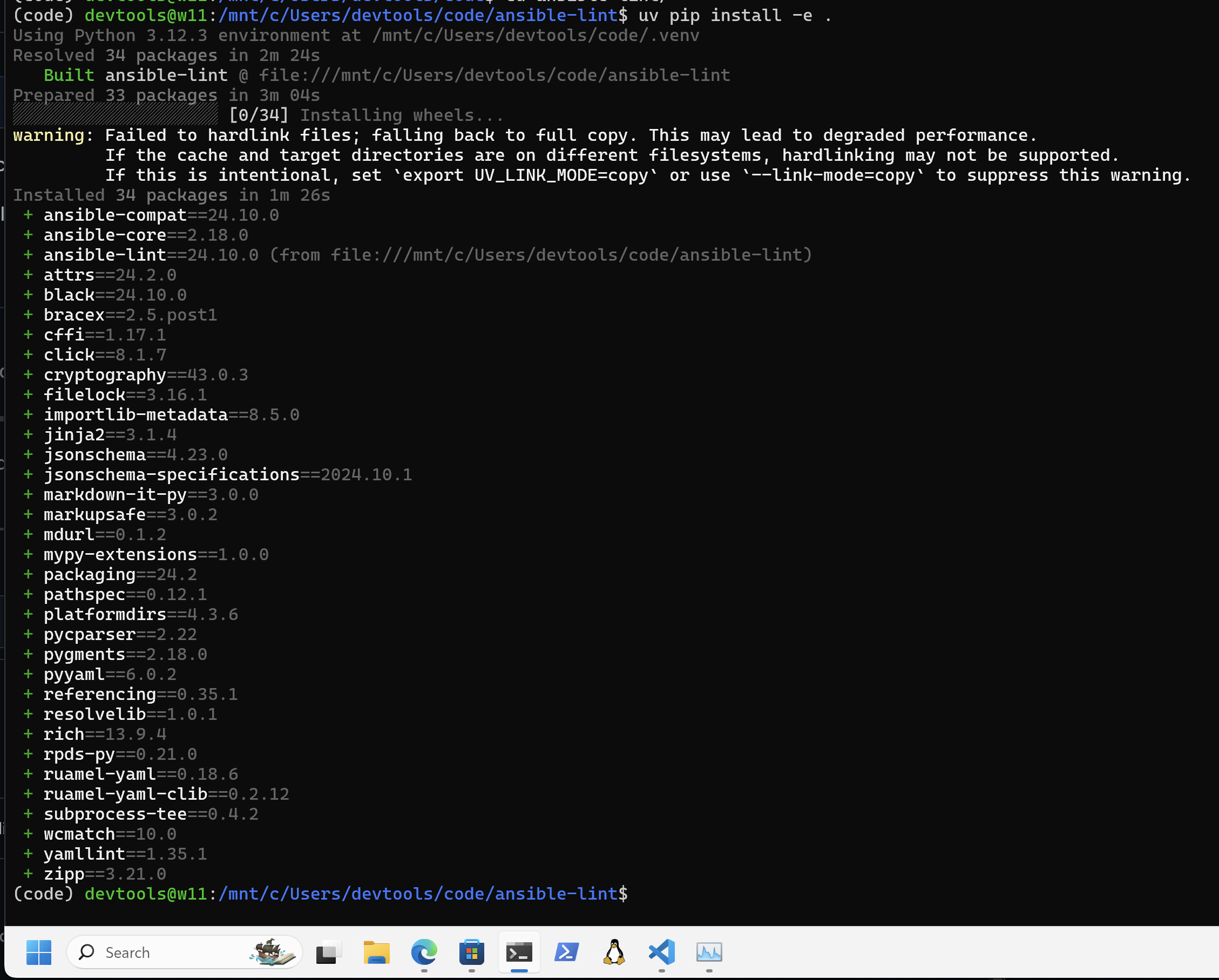Update:
... in the meantime, I found a way to bypass this issue, by adding the following to the pyproject.toml:
[tool.uv]
environments = ["platform_system != 'Windows'"]...but it's a solution using the uv proprietary section.
It would be great if the limitation with Windows was implemented for standard pyproject.toml files, as "ansible-lint>=24.9.2 ; sys_platform != 'Windows' is the PEP standard.

Environment: MacOS 15.0 Ansible version: 10.4.0 uv version: 0.4.15
When trying to installed ansible-lint n a uv-managed virtual environment, with
uv add ansible-lint, uv will only installed the version 6.8.7 which seems to be the last version with a dependency tree that uv can resolve. So I tried to force a more recent version by specifying the version inpyproject.toml(for example>=24.9.2), but in that case I get the following dependency tree solving error:I also tried the following in the
pyproject.toml:...but this platform flag seems to have no effect and I get the same error.